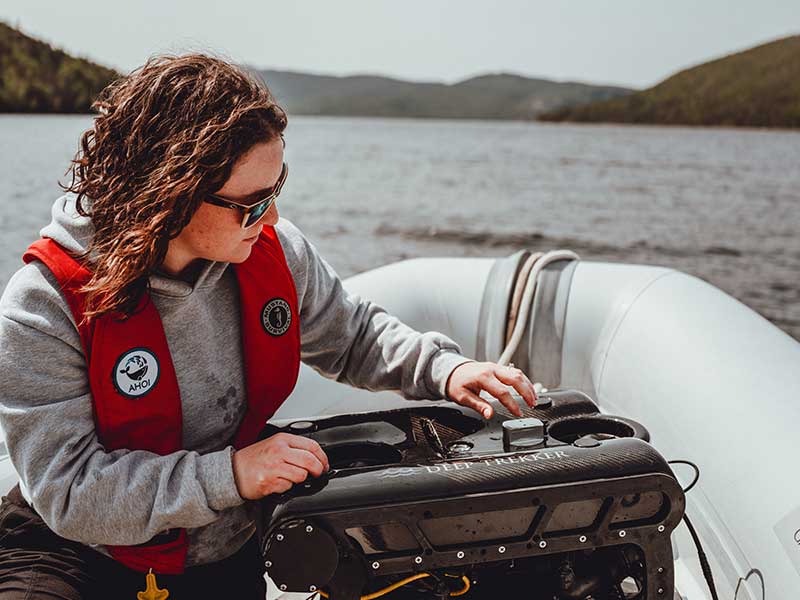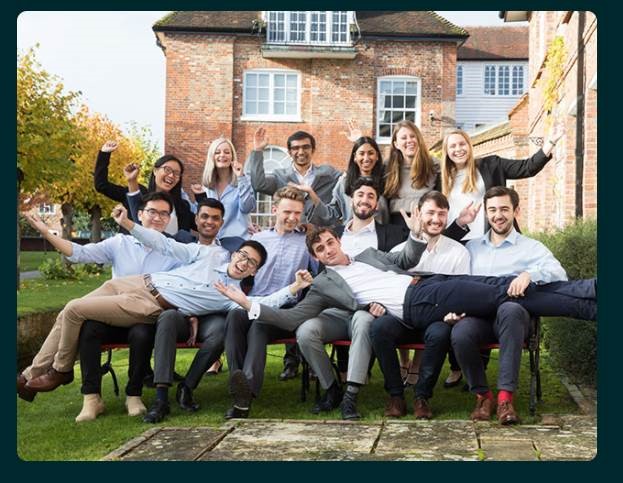A healthy ocean is essential for protecting species and habitats and supporting the livelihoods of coastal communities globally. However, climate change is significantly impacting marine ecosystems worldwide. Rising sea levels, increased and more intense hurricanes, stronger storm surges, and changing weather patterns are altering coastal environments and the communities that depend on them.
One such place affected by these global changes is on the west coast of Newfoundland and Labrador, Canada. The Gros Morne region is known for its rare natural beauty and geological features and includes a National Park that has been awarded UNESCO World Heritage status. Connected to this park and its fjord-carved landscape are coastal communities that have relied on the ocean for centuries. As the climate changes, it becomes more vital to monitor the health of local eelgrass beds, saltmarshes, and other rich marine environments that support coastal community livelihoods.
Deep Trekker designs and manufactures underwater remotely operated vehicles (ROVs) that monitor and maintain underwater infrastructure and the environment. Its ROVs are used in many applications, from monitoring the foundations of bridges to inspecting onshore water tanks. Another of its applications is to support marine research and ocean science. Research institutions and environmental organisations use Deep Trekker ROVs to help survey, analyse, explore and maintain marine environments using their advanced capabilities, such as 4K cameras, lasers and sonar, to measure and identify marine species that have never been seen before and their important habitats whilst also creating detailed maps of the ocean floor.

Rebecca Brushett is the founder of The Atlantic Healthy Oceans Initiative (AHOI), based in Norris Point in the Gros Morne region. AHOI is a non-profit organisation focused on protecting the ocean health and the coastal communities tied to it. AHOI conducts research to better understand the richness of species and marine biodiversity in the region so they can address any potential impacts that may arise due to a changing climate. Bonne Bay is a unique u-shaped fjord reaching depths of almost 300 meters. Its depth and Arctic-like temperatures at the bottom make studying the life and habitats on the ocean floor impossible. Now with their Deep Trekker ROV, combined with expert knowledge passed on to AHOI’s marine biologists from previous researchers and local fish harvesters, they can explore these hard-to-reach marine habitats.
This approach has a significant commercial and social impact on the local area. It enables precise monitoring to help better understand these marine habitats, which many commercially important fish stocks and local harvesters depend on. By providing clear images, accurate depth and temperature readings, and detailed maps, the Deep Trekker ROV supports sustainable fishing and responsible tourism, both of which bring economic growth to the area. It also opens the door to fostering marine stewardship to protect the health of our ocean in the face of ca changing climate, while supporting responsible economic practices that coastal communities like the communities in the Gros Morne region depend on.
“The collaboration between Deep Trekker and AHOI has advanced our knowledge and understanding of what marine conservation priorities we need to safeguard the health of our ocean within and around the Gros Morne region, especially in the Bonne Bay fjord. Using the Deep Trekker ROV has allowed us to explore and will allow us to offer marine conservation measures in ways that were previously impossible. Our partnership enhances scientific understanding and promotes sustainable practices that benefit both the environment and local communities for future generations.”
Rebecca Brushett, Founder, The Atlantic Healthy Oceans Initiative


